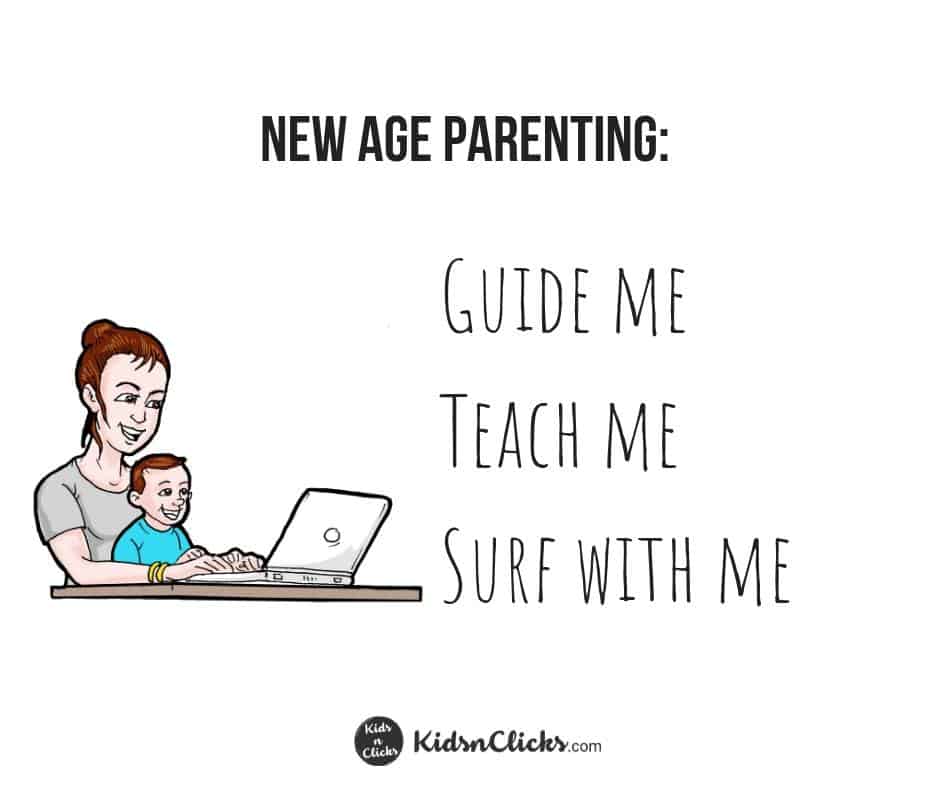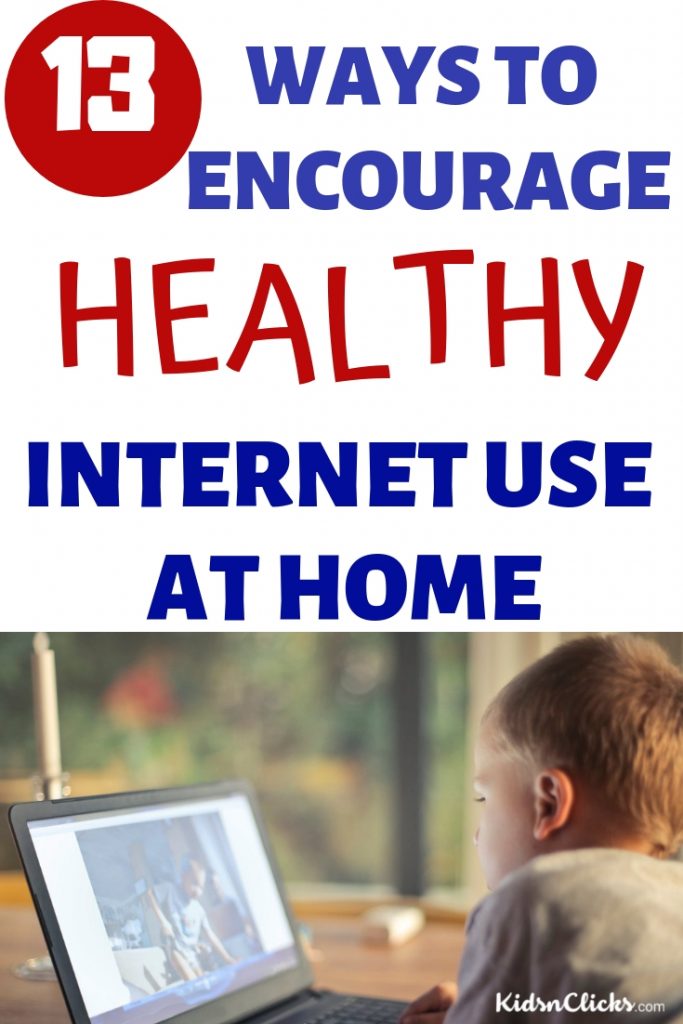children are starting on digital devices at ever younger ages. In Britain 83% of 11- to 12-year-olds and 96% of 13- to 14-year-olds have their own phones, says Childwise, a research outfit.
They are connecting with each other through the digital world.
It can be hard for parents to keep up with the changes in technology. Having to keep kids safe online has become a common discussion in many households.
What parents want to achieve : minimize the negative impact of screen time on a child, while encouraging them to use the internet healthily so they can exploit the advantages of it.
Here are simple rules you can enforce in your home:
1. The internet is not all negative
The internet can be a place for kids to connect with friends, relatives, learn new things and gain new skills. It is a pool of educational opportunities. Find out what your kids are interested in and use the internet to build on their hobby.
Here is a list of smart, healthy, fun and educational things to do with your kids
Don’t forget to get this free copy
2. Do not ban the internet
Access to the internet is widely available. While you can ban the use of it at home, it is impossible to do so once they are in school or out with their friends. Banning may be counter-productive, resulting in secretive use of the net.
Just remember when you were a kid and your parents forbid you to do something. The more they forbid, the more you would like to do it out of curiosity and the thrill of breaking the rule.
The same goes for the internet. The more you ban it the more they would like to explore the digital world. Instead, have an open discussion about safe online use and let them use it while you guide your kids to use it wisely.
3. Browse with your kids
Going online with your child gives you the opportunity to discuss online safety issues. Be respectful with the things your kids are interested in, and allow them to browse independently every now and then.
4. Age-appropriate content
Your child internet use should be adapted according to their age. Younger children will always like the attention you give them than to just focus on their devices. Whereas teenagers may find it annoying when you are intrusive with their screen use. Respect their privacy, while letting them know you are there for them.
For younger kids use parental control in their devices. Toddlers and babies need more real-life interaction than screen use
Whatever their age may be, agree on restriction together. Sign a phone contract and have consequences for breaking the contract.
Don’t forget to get this free copy
5. Don’t let kids be passive internet users
Passive internet use of just consuming content or just scrolling can lower satisfaction and mental wellbeing (Mental Health.org.uk)
Instead encourage kids to be active users, such as being creative online, creating videos, solving problems, watching music while singing it and even commenting on social media posts.
6. Encourage physical activity
You are going to help your kids switch from online and offline activities.
Let her pick her next activity, let her choose the type of activities she is interested in.
You can set a timer next to her so she gets reminded when to switch off from the online activities.
A great free app to help with this is GOYA. It is an app designed to get children off their mobile devices and moving again.
Parents can set a daily or hourly step goal for their children. You can also block specific apps that will be timed out until the desired step goal is reached by the child. No active playing or exercising, no apps!
7. Encourage healthy sleep routine
Turn off screen 1 hour before bedtime. Spend some time reading to your child during bedtime. Leave all gadgets out of the bedroom. Use a physical alarm clock to wake up.
8. Keep talking with your child:
Regular discussion with your child can give you an insight into what they are feeling and what they are interested in.
Talk to your children about the dangers of social media and the internet in general. Speak to them about cyberbullying fake news, their online reputation, pornography, and cyber crimes.
Ask them open-ended questions to gauge what their thoughts are on certain issues. For instance, ask them what they will do if someone try to contact them online. You want to ensure that your children feel safe to talk to you in case they are in trouble in the real world or in their cyber life.
Do not forget to talk to them about the good things they can do with the internet. For instance, show them how other children have used technology to make a difference in the world. This may inspire your children to be innovators.
Don’t forget to get this free copy
9. Speak to them about online and offline etiquette
Have an open conversation with your kids about their digital conduct. Before telling them what to do, here are some points you need to consider :
- Do not tell them do’s and dont’s. Rather find out what boundaries have they set for themselves, then give them your perspective on certain issues
- Speak to them about your expectation by letting them know that you are concern about their well-being. Give them examples from mainstream news that they can relate to.
- Agree on best practices together.
10. Talk about difficult topics like sex and porn
The internet has made it easy to access pornography. A new report suggests that children as young as 8 years old have admitted to being addicted to internet pornography.
Facts about children and online pornography
- 53% of 11- to 16-year-olds have seen explicit material online
- By the age of 14, 94% have seen porn
- 28% of children find materials accidentally, for ex through pop up advertisements
(Source: https://www.bbc.co.uk/news/education-36527681)
As difficult as it can be speaking to your kids about sex and porn, it is important that you discuss it with them so they don’t get all their information from the internet as this can result in an unrealistic expectation on what a real sexual relationship is like.
Here is how you can talk to your child about sex and porn without feeling weird about it
Don’t forget to get this free copy
11. Talk about photoshopped selfies and body image
In a survey conducted by Girlguiding, half of girls ages 16 to 21 said they would undergo surgery to improve their bodies.
Some teens develop eating disorders, others experience depression. A 2009 study found that girls who were unhappy with their appearance were at a significantly higher risk for suicide.
Talk to your teen about the unrealistic photoshopped and airbrushed images they see online. Help them distinguish between what is real and not.
12. Pay attention to your child’s behavior
If you notice a change in your child’s behavior, such as being quieter, spending hours in their room alone, constantly scrolling or feeling sad then speak to them about the issue.
Get professional help by contacting school counselors or local charities for guidance.
Psst, don’t forget to pin this
13. Conclusion & Final advice for parents
What is right for one child may not necessarily work for another child. You know your child’s maturity and responsibility level better than anyone else. Do not assume that just because a child has reached a certain age they should be allowed to wonder on the internet themselves.
Be part of their digital lives and be engaged. Watch a video together and look up something online and talk about it with your kids.
The trouble many children find is that it is hard to get any attention from their parents because these days they, too, are constantly on their devices.
Keep your phones down and be good role models to your kids.
Don’t forget to get this free copy
Here are tips to you keep children safe in the digital age :
Tips for Non-Tech Savy Mums :4 tips to digital parenting for non-tech savy mums
Stop kids from being datafied : Are your children datafied from birth
3 dangerous places for children to be online : 3 places kids should have limited internet access
Finally don’t forget click below:
Say Hello On: Instagram | Facebook | Pinterest
Join the eParenting Community On : Facebook
Was this helpful?
Good job! Please give your positive feedback
How could we improve this post? Please Help us.










